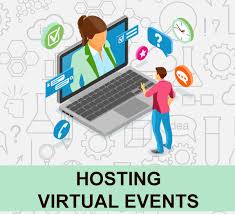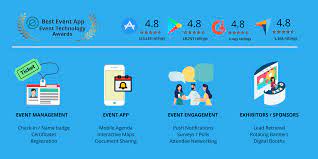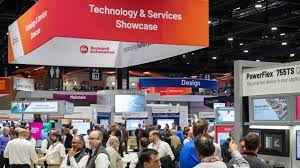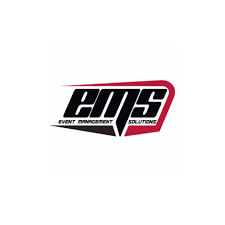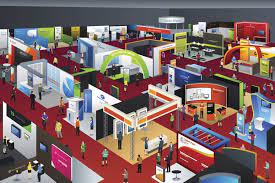Wholesale Trade Shows: A Gateway to Business Success
In the dynamic world of commerce, wholesale trade shows have emerged as an essential platform for businesses to connect, network, and thrive. These events bring together manufacturers, suppliers, distributors, and retailers under one roof, creating a vibrant marketplace where opportunities abound.
So, what exactly is a wholesale trade show? Simply put, it is an exhibition where businesses showcase their products or services to potential buyers who are interested in purchasing goods in bulk. These shows serve as a meeting point for industry professionals, providing a unique opportunity to establish new business relationships and strengthen existing ones.
One of the key advantages of participating in wholesale trade shows is the ability to reach a targeted audience. Unlike general consumer exhibitions, these events attract professionals who are specifically looking for products to stock their stores or fulfill their business needs. This focused audience ensures that your brand and offerings are showcased in front of relevant decision-makers who can potentially become long-term customers.
Moreover, wholesale trade shows offer an invaluable platform for product launches and market testing. Exhibitors can gauge customer interest and receive direct feedback on their offerings. This real-time interaction allows businesses to fine-tune their products or services based on immediate market response, leading to improved sales strategies and increased customer satisfaction.
Another significant advantage of attending these trade shows is the opportunity for networking. Exhibitors can connect with industry peers, form strategic partnerships, and learn from experienced professionals. Sharing knowledge and experiences not only helps businesses stay updated with the latest trends but also opens doors for collaboration and growth.
Furthermore, wholesale trade shows provide a comprehensive overview of the market landscape. By exploring different booths and exhibits, attendees can gain insights into competitors’ offerings, pricing strategies, and emerging trends. This information empowers businesses to make informed decisions about product positioning and market differentiation.
In recent years, many wholesale trade shows have embraced technology to enhance the overall experience. Digital platforms allow exhibitors to showcase their products virtually, expanding reach beyond physical boundaries. This evolution has made it easier for businesses to participate in trade shows, regardless of geographical constraints or logistical challenges.
In conclusion, wholesale trade shows play a pivotal role in the success of businesses across various industries. These events offer a unique opportunity to connect with potential buyers, launch new products, gather market insights, and foster valuable relationships. By leveraging the power of wholesale trade shows, businesses can propel their growth and establish themselves as key players in their respective markets.
7 Essential Tips for Wholesale Trade Shows: Maximizing Success in Wholesale Trading
- Research the trade show and vendors before attending. Make sure that the show is relevant to your business and that you will be able to find suppliers who can meet your needs.
- Bring a list of products or services you’re looking for, as well as any other information that may help you make decisions quickly while at the show.
- Wear comfortable shoes and clothing, as trade shows often involve lots of walking around and standing in one place for long periods of time.
- Bring plenty of business cards so that you can easily exchange contact information with potential suppliers or customers who may be interested in your products or services.
- Stay organized by taking notes on each vendor’s offerings and prices so you can compare them later on when making purchasing decisions back at your office or store.
- Take advantage of discounts offered by vendors during the trade show – they may not be available afterwards!
- Follow up with contacts after the show – it’s important to maintain relationships with potential customers and suppliers in order to maximize your success in wholesale trading going forward!
Research the trade show and vendors before attending. Make sure that the show is relevant to your business and that you will be able to find suppliers who can meet your needs.
Researching Wholesale Trade Shows: A Key to Success
When it comes to attending wholesale trade shows, preparation is key. One important tip that can significantly enhance your experience is to thoroughly research the trade show and vendors before attending. By doing so, you can ensure that the show aligns with your business goals and that you will have access to suppliers who can meet your specific needs.
First and foremost, it’s essential to determine the relevance of the trade show to your industry or niche. Not all trade shows cater to every business sector, so investing time in understanding the focus and theme of the event is crucial. Look into the exhibitor list, seminar topics, and any other available information to gauge whether the trade show will provide value for your business.
Additionally, researching vendors who will be present at the trade show is equally important. Take a closer look at their product offerings, quality standards, pricing structures, and any other pertinent details that are relevant to your business requirements. This preliminary investigation will help you identify potential suppliers who can fulfill your needs and save you time during the actual event.
Furthermore, consider reaching out to vendors before attending the trade show. Contacting them in advance allows you to establish initial connections and schedule meetings during the event. This proactive approach not only ensures that you make efficient use of your time but also increases your chances of finding suppliers who are a good fit for your business.
By conducting thorough research prior to attending a wholesale trade show, you set yourself up for success. You can maximize opportunities by focusing on events that align with your industry or niche while identifying vendors who offer products or services tailored to your specific requirements. This strategic approach saves valuable time and enables productive interactions during the trade show.
Remember, wholesale trade shows are bustling marketplaces where connections are made and deals are sealed. So invest time in researching both the event itself and its participating vendors—your efforts will pay off as you navigate through a sea of opportunities and find the right suppliers who can meet your business needs.
Maximizing Your Wholesale Trade Show Experience: Come Prepared with a List
Wholesale trade shows are bustling hubs of activity, filled with countless exhibitors showcasing their products and services. To make the most of your time at these events, it’s crucial to come prepared with a clear plan. One valuable tip that can significantly enhance your trade show experience is to bring a list of products or services you’re actively seeking, along with any other pertinent information that can aid in quick decision-making.
Why is this tip so important? Well, imagine walking into a trade show without a clear idea of what you’re looking for. The sheer volume of options and exhibitors can quickly become overwhelming. By having a well-organized list in hand, you’ll stay focused and avoid wasting time on irrelevant offerings.
Start by identifying the specific products or services that are currently in demand for your business. Consider factors such as customer preferences, market trends, and potential gaps in your inventory. Prioritize these items on your list to ensure that you allocate sufficient time and attention to finding them.
Additionally, include any specific criteria or requirements for each product or service. This could be anything from pricing considerations and minimum order quantities to preferred delivery timelines or specific quality standards. Having this information readily available will enable you to make informed decisions quickly while at the trade show.
Furthermore, don’t forget to bring along any supporting materials that may aid in your decision-making process. This could include brochures, samples, technical specifications, or even digital files on your mobile device. These resources will allow you to compare offerings on the spot and effectively evaluate whether they align with your business objectives.
By coming prepared with a well-curated list and supporting materials, you’ll be able to navigate the trade show floor more efficiently and engage in meaningful conversations with exhibitors who meet your criteria. This level of preparedness not only saves time but also increases the likelihood of finding the right products or services that can drive your business forward.
Remember, wholesale trade shows are bustling and time-sensitive environments. By bringing a list of products or services you’re looking for, along with any other relevant information, you position yourself for success. So, get organized, prioritize your needs, and make the most of your trade show experience by being prepared to make quick and informed decisions.
Wear comfortable shoes and clothing, as trade shows often involve lots of walking around and standing in one place for long periods of time.
Comfort is Key: Dress for Success at Wholesale Trade Shows
When it comes to attending wholesale trade shows, one tip stands out among the rest: wear comfortable shoes and clothing. While it may seem like a small detail, it can make a world of difference in ensuring a successful and enjoyable experience.
Trade shows are bustling events filled with exhibitors, buyers, and industry professionals. Navigating through the crowds, exploring different booths, and engaging in conversations require a fair amount of walking and standing. Without proper footwear, this can quickly become an uncomfortable ordeal.
Investing in a pair of comfortable shoes is essential for trade show success. Opt for supportive footwear that provides cushioning and stability. Look for features like arch support and shock absorption to keep your feet happy throughout the day. Remember, you’ll be on your feet for long periods, so prioritize comfort over style.
In addition to footwear, choosing appropriate clothing is equally important. While trade shows may have varying dress codes depending on the industry or event theme, comfort should still be a priority. Opt for breathable fabrics that allow freedom of movement. Consider layering your outfit to adjust to fluctuating temperatures within exhibition halls.
By wearing comfortable shoes and clothing, you’ll not only enhance your physical well-being but also improve your overall experience at trade shows. Comfortable attire allows you to focus on networking, exploring new products, and engaging in meaningful conversations without distractions or discomfort.
Moreover, feeling physically at ease boosts confidence and professionalism. When you’re comfortable in what you’re wearing, you exude an air of self-assurance that can positively impact your interactions with potential partners or clients.
Remember that trade shows often involve long hours on your feet, so taking care of yourself is crucial. Don’t underestimate the power of comfortable shoes and clothing when it comes to maximizing your productivity and enjoyment at these events.
So next time you’re preparing for a wholesale trade show, prioritize comfort alongside your business objectives. Dress for success by wearing comfortable shoes and clothing, allowing you to navigate the event with ease, focus on networking, and make the most out of every opportunity that comes your way.
The Importance of Business Cards at Wholesale Trade Shows
When it comes to wholesale trade shows, networking is key. And one essential tool that should never be overlooked is the humble business card. These small pieces of paper hold immense value as they serve as a tangible representation of your brand and a convenient way to exchange contact information with potential suppliers or customers.
Attending a wholesale trade show means you’ll have countless opportunities to meet industry professionals who are interested in what you have to offer. Whether you’re showcasing your products or services, having a stack of business cards readily available can make all the difference in establishing connections and fostering future collaborations.
Why are business cards so important at these events? Firstly, they offer a professional and convenient way to exchange information. In the fast-paced environment of a trade show, time is limited, and conversations can be brief. Handing over your business card ensures that potential partners or customers have all the necessary details about your company at their fingertips.
Business cards also leave a lasting impression. In today’s digital age, where virtual connections are common, receiving a physical card stands out and adds a personal touch. It shows that you value face-to-face interactions and take your business seriously.
Moreover, business cards provide an opportunity for branding. The design, colors, and overall aesthetic of your card can reflect your company’s identity and leave a memorable impression on recipients. Including your logo and tagline helps reinforce brand recognition long after the trade show has ended.
Another advantage of carrying plenty of business cards is their versatility beyond immediate networking opportunities. Attendees often collect multiple cards throughout the event, creating an opportunity for further exposure as they revisit their collection after the trade show concludes.
To make the most out of your business cards at wholesale trade shows, make sure they contain essential information such as your name, title or position within the company, contact details (phone number, email address), website URL if applicable, and any social media handles relevant to your business.
In summary, bringing an ample supply of business cards to wholesale trade shows is a simple yet crucial tip for maximizing your networking efforts. These small but mighty tools facilitate the exchange of contact information, leave a lasting impression, and provide an opportunity for continued brand exposure. So, be prepared, hand out your cards with confidence, and watch as new connections and opportunities unfold.
Stay organized by taking notes on each vendor’s offerings and prices so you can compare them later on when making purchasing decisions back at your office or store.
Maximizing Your Wholesale Trade Show Experience: The Power of Taking Notes
Wholesale trade shows can be a whirlwind of activity, with countless vendors vying for your attention. Amidst the excitement and flurry of conversations, it’s crucial to stay organized and gather essential information that will guide your purchasing decisions later on. One simple yet effective tip to ensure you make the most out of these events is to take notes on each vendor’s offerings and prices.
By diligently jotting down details about the products or services that catch your interest, you create a valuable resource for future reference. These notes serve as a comprehensive catalog of what you’ve seen and evaluated, enabling you to compare vendors objectively when you’re back at your office or store. This practice helps prevent any hazy recollections or confusion that may arise from visiting numerous booths throughout the day.
When taking notes, focus on key aspects such as product features, quality, pricing structures, discounts, and any unique selling points highlighted by the vendor. Be sure to capture specific details that are important to your business needs and customer preferences. By doing so, you’ll have a clear overview of each vendor’s offerings, making it easier to assess their suitability for your business.
Additionally, note-taking allows you to record any personal observations or impressions about the vendor’s professionalism, customer service approach, or potential for future collaboration. These subjective insights can be invaluable when making decisions based not only on product quality but also on building long-term partnerships with reliable suppliers.
To make note-taking even more effective, consider using a structured format or template that suits your needs. This could include sections for product descriptions, pricing details, contact information, and any follow-up actions required. By organizing your notes systematically during the trade show itself, you’ll save time and effort when reviewing them later.
Remember that technology can be an ally in this process as well. Many attendees now use mobile apps specifically designed for trade shows, which offer features like note-taking, photo capturing, and even voice recording. These digital tools can streamline your note-taking process and ensure that all crucial information is captured accurately.
In conclusion, staying organized through note-taking is a valuable strategy for maximizing your wholesale trade show experience. By documenting each vendor’s offerings and prices, you create a reliable reference point to compare and evaluate options later on. This practice not only helps you make informed purchasing decisions but also saves time by avoiding the need to rely solely on memory. So grab your notebook or fire up that trade show app and get ready to take notes that will pave the way for successful buying choices in the future.
Take advantage of discounts offered by vendors during the trade show – they may not be available afterwards!
When attending wholesale trade shows, one valuable tip to keep in mind is to take full advantage of the discounts offered by vendors during the event. These exclusive discounts may not be available once the trade show concludes, making it a prime opportunity to secure significant savings on your purchases.
Wholesale trade shows bring together vendors from various industries, all eager to showcase their products and attract potential buyers. To stand out from the competition and entice attendees, vendors often offer special discounts and promotions during the event. These discounts can range from percentage-based reductions to bundle deals or even exclusive pricing for bulk orders.
By capitalizing on these limited-time offers, you can maximize your purchasing power and potentially save a substantial amount of money. Whether you’re a retailer looking to stock up on inventory or a business owner sourcing materials for production, these trade show discounts can significantly impact your bottom line.
It’s important to note that these vendor discounts are typically designed exclusively for trade show attendees. Once the event concludes, vendors may revert to their regular pricing structures or discontinue the specific promotions they offered during the trade show. This makes it crucial to seize the opportunity while you have direct access to these advantageous deals.
To make the most of these discounts, come prepared with a clear understanding of your buying needs and budget. Research participating vendors in advance and identify those offering products or services that align with your requirements. Prioritize visiting their booths early during the trade show, as popular items may sell out quickly or limited-time offers may have quantity restrictions.
Additionally, consider establishing relationships with vendors during the event. Engage in conversations, express interest in their offerings, and inquire about potential future collaborations. Building rapport can sometimes lead to extended discount opportunities beyond the trade show itself.
In summary, taking advantage of vendor discounts offered during wholesale trade shows is an excellent strategy for securing significant savings on your purchases. By being proactive in researching participating vendors, planning your visit strategically, and establishing relationships, you can make the most of these limited-time offers. Remember, these discounts may not be available once the trade show ends, so seize the opportunity and enjoy the benefits of exclusive pricing while you can!
Follow up with contacts after the show – it’s important to maintain relationships with potential customers and suppliers in order to maximize your success in wholesale trading going forward!
Follow up with Contacts: The Key to Unlocking Wholesale Trading Success
Attending a wholesale trade show is just the first step towards building fruitful business relationships. To truly maximize your success in wholesale trading, it is crucial to follow up with the contacts you made during the event. By maintaining these relationships, you can nurture potential customers and suppliers, solidify connections, and open doors for future collaborations.
Following up after a trade show demonstrates your commitment and professionalism. It shows that you value the connections you made and are genuinely interested in exploring potential business opportunities. Remember, many attendees meet numerous people during these events, so reaching out afterward helps you stand out from the crowd.
When following up, personalized communication is key. Take the time to send individualized messages or emails to each contact, referencing specific discussions or topics of interest from the trade show. This personal touch not only shows that you were attentive during your conversations but also helps create a lasting impression.
In your follow-up communication, be clear about your intentions and next steps. Whether it’s scheduling a meeting to discuss potential partnerships or sending additional information about your products or services, make sure to provide actionable steps that demonstrate your commitment to moving forward.
Additionally, consider connecting with your contacts on professional networking platforms such as LinkedIn. This allows for ongoing engagement and provides an avenue for sharing updates about your business or industry insights that may be of interest to them.
Remember, building relationships takes time and effort. Regularly check in with your contacts even after initial follow-ups. Share relevant industry news or updates that could benefit them and maintain open lines of communication. By staying top-of-mind and demonstrating continued value, you increase the likelihood of turning these contacts into long-term customers or reliable suppliers.
Lastly, don’t underestimate the power of face-to-face meetings post-trade show. If possible, arrange in-person meetings with key contacts to further strengthen relationships and explore potential collaborations more deeply.
In conclusion, following up with contacts after a wholesale trade show is a critical step in maximizing your success in wholesale trading. By demonstrating your commitment, personalizing your communication, and maintaining regular engagement, you can nurture relationships with potential customers and suppliers. Remember, these connections are the foundation for long-term success in the wholesale industry.



